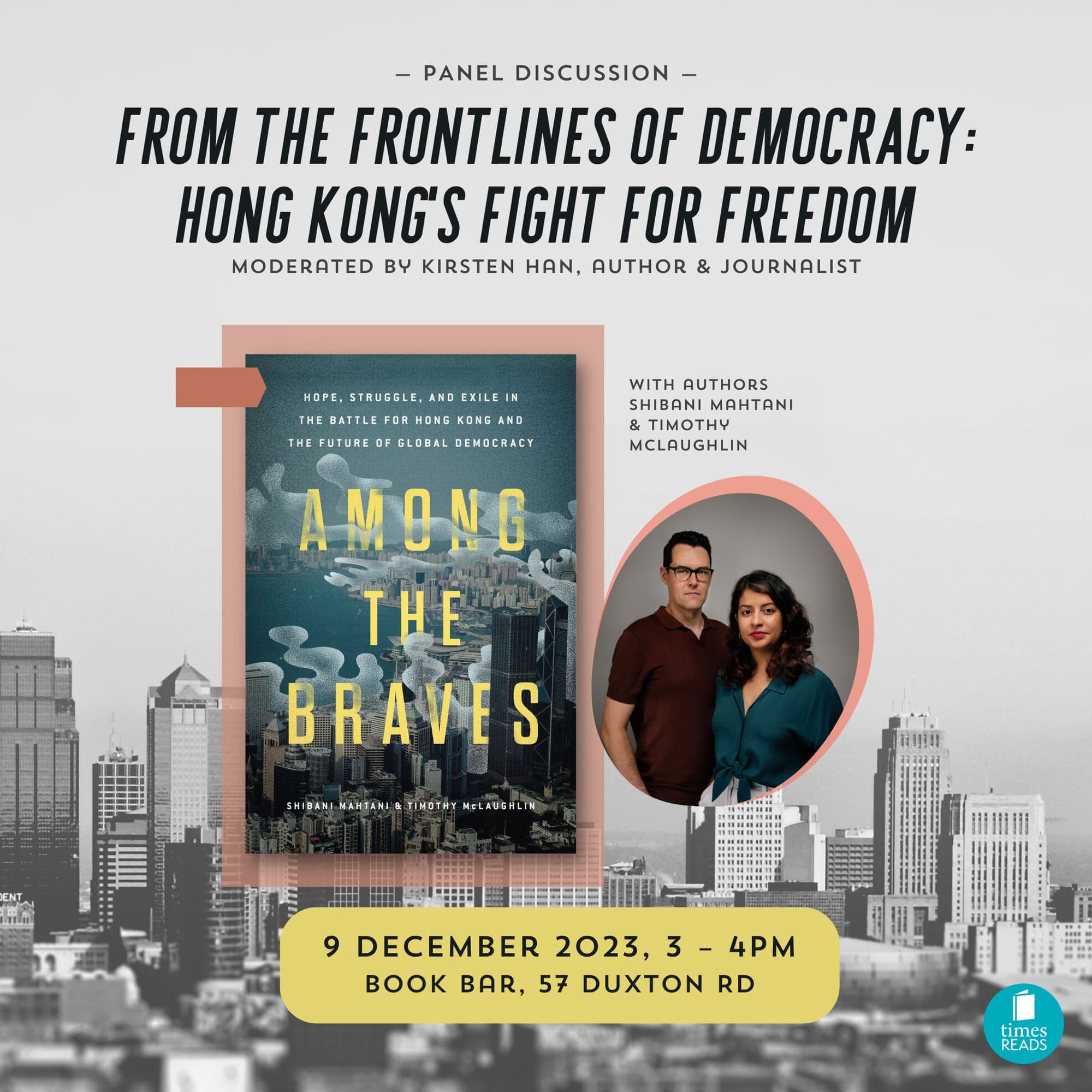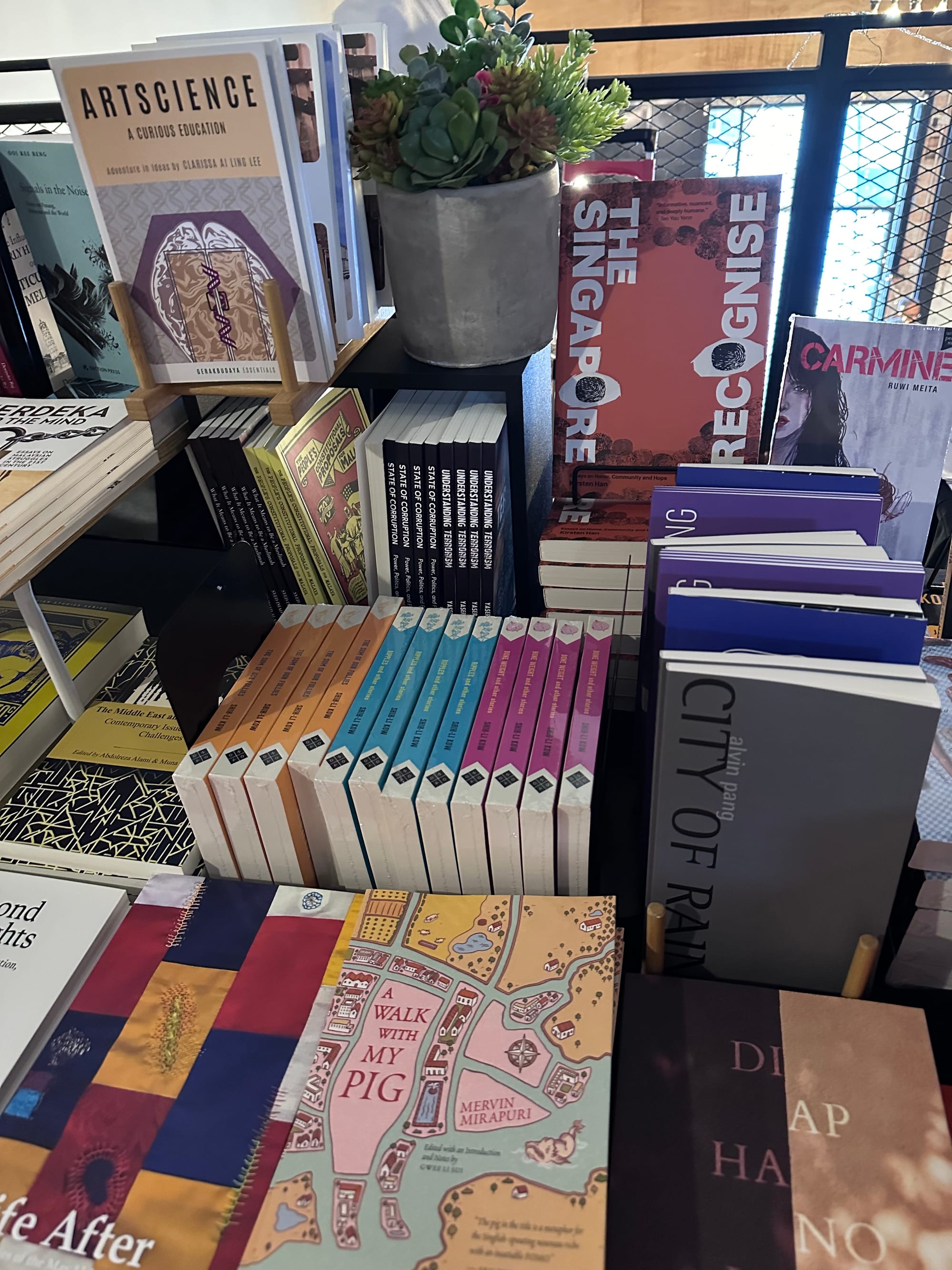I’m writing to you this week from Penang, where I’m attending the George Town Literary Festival. It’s the first time I’m (properly) attending a lit fest—I’m much more used to journalism workshops, media start-up festivals and human rights conferences. It’s quite a different vibe; for one, unlike the other events I’ve attended, it doesn’t feel like everyone is working all the time on the sidelines of panels and sessions...
The Constitution is amended, again
Parliament has passed a constitutional amendment that will allow the president and ministers to hold positions in foreign organisations (in their private capacities) if it’s in the national interest. Of course they have; even though both the Workers’ Party and Progress Singapore Party voted against it, it was still eight versus 75 in the House.
The passage of this amendment means that Tharman can hold on to his existing international positions, albeit in his private capacity, while being Singapore’s president. The new law does stipulate three conditions for such situations:
- The foreign appointment cannot breach existing rules in the Constitution.
- The appointment has to be assessed by the Cabinet. The Cabinet will then advise the President if it is in Singapore’s interest to accept. In the case of ministers, they will need to get the Prime Minister’s permission.
- The President doesn’t have that much real discretion, because they’re expected to “concur with the advice of the Cabinet”.
MPs raised questions about whether such an arrangement would affect Tharman’s official duties, or lead to conflicts of interest. “Any time he spends serving private interests will be time taken away from his national duties to his constituents, who are the people of Singapore. Surely the role of the President is significant enough to merit his undivided attention,” WP’s Gerald Giam said. This concern wasn’t just coming from the opposition; some PAP MPs raised the issue in their speeches too. In response to such concerns, PAP MP Christopher De Souza said that Tharman “packs a lot” into his day, and that the international positions do not divide the president’s attention. (I guess some people are just more superhero than others.)
Deputy Prime Minister Lawrence Wong also argued that the president’s role as Singapore’s top diplomat is to represent and contribute to Singapore on the international stage as well, so foreign appointments aren’t actually a “trade-off”. He didn't miss the opportunity to chide the opposition for opposing “for the sake of opposition”. 😑 Singapore politics is really not going to be significantly different under this man!
How does one escape the poverty trap in Singapore?
The government has launched a new scheme, known as ComLink+. It is condescendingly framed, as seen in this Straits Times headline: “New financial incentives to spur low-income families to work towards improving their lives”. These ComLink+ measures will be subject to a three-year trial period before the government carries out an assessment to determine if they'll be scaled up.
The scheme targets a number of areas:
- It wants to encourage low-income families to send their children to pre-school by offering a one-off top-up of $500 to the kid’s Child Development Account, which can be used to pay for pre-school and healthcare. If the kiddos continue attending pre-school (with at least 75% attendance) between the ages of three and six, they’ll get $200 more in their Child Development Account every three months.
- Adults are encouraged to find work that pays CPF contributions—i.e. steady jobs and not gig economy roles—with a gross salary of at least $1,400 a month. If they do this, they’ll get $450–$550 every quarter (as long as they continue to be employed) in a mix of cash and CPF payouts. If two adults in the household meet this requirement, they’ll get an extra $50 every three months.
- Households that have verifiable debt (from licensed companies, utilities, etc.) will also be given help to pay it off: the ComLink+ scheme will match dollar-for-dollar what the family pays back, up to $2,500. Families can only benefit from this once and must not already be receiving financial aid from the ComCare scheme.
- The government will also top up $2 to CPF accounts for every dollar the family voluntarily contributes to their CPF. This is meant to encourage families to save up to eventually buy their own home. (Given the cost of property these days, I’m not sure how long they think this is will take.)
ComLink officers will be trained to act as “family coaches” to “motivate” families to work towards their goals.
I’m sure this scheme will be helpful in some way to some families, but when I read this news I think of some of the low-income households I’ve come across over the years. None of them needed to be “spurred” to improve their lives—who doesn’t want to improve their lives? But their struggles were with immediate survival, needs as urgent as “I can’t afford to buy food for my children tonight”. Debts accumulate with not just licensed companies but also to family and friends. It seems unhelpful that people who are on ComCare are excluded from the debt repayment support, because many who are on ComCare might also have debts that they're struggling with. Steady work might not be so easy to find if they have to also worry about childcare and other caregiving obligations, because, unlike Singaporeans who are better off, they can’t afford domestic workers or to pay for other childcare options. Accessing financial aid from the state or other organisations can be incredibly mind-boggling and draining, not to mention time-consuming because of the means-testing, applications and appeals that need to be gone through. I’ve seen people with urgent and long-term needs who approached social service agencies only to get a modest amount of one-off help (which vanishes almost instantly once they’ve been grocery shopping and repaid some debts), or offers to pay utilities bills (which, while helpful, doesn’t solve the immediate problem of food insecurity).
I understand the allure of “self-reliance” as a buzzword, but the deep disdain and distrust that Singapore has for people who are poor means that we keep tinkering with social policies, adopted approaches where the government, voluntary welfare organisations and corporate/commercial sponsors make determinations from places of privilege that might not match the lived experiences of struggling Singaporean households, and might actually create more stress and anxiety. Instead of creating ever more schemes—which in turn create ever more admin and confusing processes to navigate—I wish we would more fundamentally reconsider our principles and values, and not reject studies like the Minimum Income Standards project because it doesn’t match what we think people “deserve” to live.
Got some more…
📱 The Online Criminal Harms Act will be “operationalised progressively” in the first quarter of 2024. This would give the authorities more power to issue directions to online platforms. Sun Xueling, the minister of state for home affairs, said in Parliament that Telegram hasn’t yet responded to the police’s requests to remove access to accounts that shared sexually explicit content, but that there has “recently been some progress in our engagement with Telegram”.
😐 President Tharman Shanmugaratnam has conferred a top military award on Prabowo Subianto, Indonesia’s defence minister, “for his significant contributions towards strengthening the close and longstanding bilateral defence relations between Indonesia and Singapore”. The same Prabowo who has had accusations of massive human rights abuses—including allegations of involvement in killing civilians in East Timor and kidnapping and disappearing activists—follow him around for years?
🧑🏻💻 SPH Media Trust is acquiring the media company Tech In Asia. Josephine Teo, the minister for communications and information, says this is in line with the intent of the large amount of government funding SPH Media Trust is getting.
On the radar

I've been reading Among the Braves: Hope, Struggle, and Exile in the Battle for Hong Kong and the Future of Global Democracy by Shibani Mahtani and Timothy McLaughlin, and... 'enjoying' is definitely the wrong word given the subject matter, but it is very good!
I'll be moderating a discussion with them at Book Bar on 9 December from 3–4pm, so see you there.


My plushies and my book at the George Town Literary Festival.
Thank you for reading! As always, feel free to forward this weekly wrap to anyone you like, and spread the word about this newsletter!
